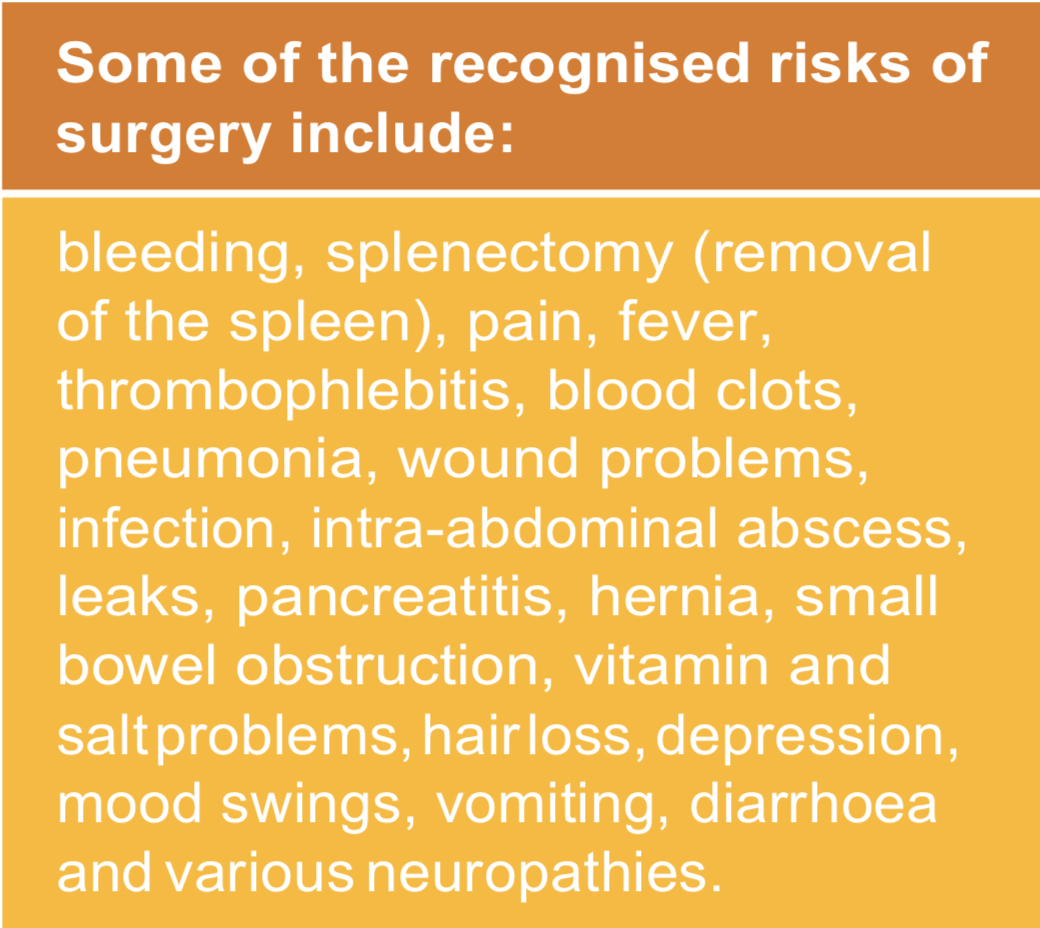As with any surgery, there are risks involved including a risk to life. Some of these are the risks experienced with any type of surgery and others are specific to your procedure. These risks and all other potential complications will be discussed with you in full before proceeding with your surgery. Our team approach to your care and ensuring you become mobile as soon as possible are a big part of the many steps we take to avoid complications.
Any operation to control weight(bariatric surgery) carries risks including risk to life. The mortality rates for sleeve gastrectomy are less than 0.1%. We’ll discuss the risks and any potential complications with you in detail before your surgery. Our team approach to your care and ensuring you get mobile as soon as possible after your operation are a big part of the many steps we take to avoid complications.
If you smoke you must stop – this will help your recovery after surgery. It’s important to remember that being overweight is in itself a risk to life and can lead to many health issues so the risks associated with the surgery are considered acceptable. For example, diabetes is completely resolved a few months after surgery in up to 80 - 90% of cases. In about two thirds of cases, dyslipidaemia, hypertension and sleep apnoea are also resolved.
If healthy lifestyle choices are not maintained it is recognised that
these conditions can return.

Surgery requires general anaesthesia so you are asleep during the operation. Anaesthesia is very safe – it is rare for patients to have significant problems from being under anaesthesia. Any operation involves cuts or incisions which can sometimes develop infection and hernias. Surgery can also affect the way your body works leading to complications such as chest infections, blood clots, urine retention and infection. Any surgery can lead to bleeding and a blood transfusion may be required.
Keyhole surgery can sometimes cause damage to other organs like the bowel or spleen. Any keyhole or laparoscopic operation can end up being changed to an open operation and if difficulties occur during the surgery plans may be changed or the operation may even be stopped.
In any operation where a join is made or an organ is divided there is a risk of a leak from these areas. For sleeve gastrectomy this is about 1%. If this happens abscesses can form which can be life threatening or may mean a long stay in hospital. A particular risk with losing weight fast can be gall stone disease where the gall bladder needs to be removed.
In very rare cases liver disease can be made worse by the operation but more commonly weight loss improves liver function. The stomach can become too narrow and may need to be stretched. The stomach or oesophagus can also become inflamed. Some people also experience troubles with heartburn after surgery. Long term you may find you lose too much weight or not enough. With weight loss surgery you can also experience problems with dehydration and vitamin deficiency.